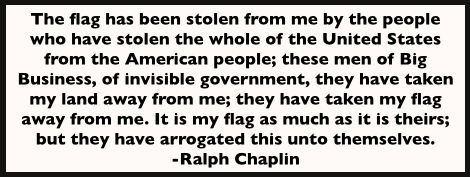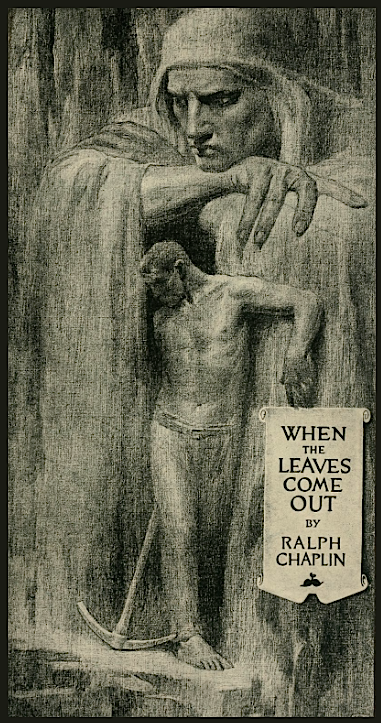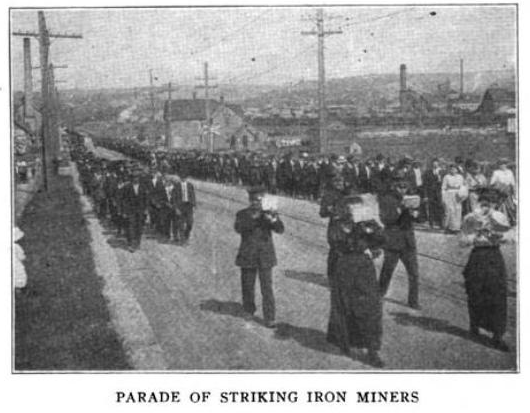 —————
—————
Hellraisers Journal – Tuesday May 6, 1913
John W. Brown on West Virginia Despotism: The Attack on Holly Grove
From The Coming Nation of May 3, 1913:
[Part I of III]
NOW that hostilities between the hired assassins of the coal barons and the coal miners have ceased, the new governor, H. D. Hatfield, inaugurated, and well on his way with “his policy,” and all the undesirable citizens incarcerated and held incommunicado, and “peace reigns throughout the war zone,” society in general may find time to consider for a few brief moments just where we are at, and, incidentally, decide whether or not West Virginia is still a part of the United States, or whether she has not put herself clear outside the organic law of the nation.
Owing to the fact that all the miners and their sympathizers who were arrested with them have been kept practically incommunicado, while the most strict censorship has been enforced so far as the facts are concerned, I make haste at this the first opportunity we have had to present the miners’ side of the conflict. I do not wish to deal here with the long-drawn-out conflict which has been going on now between the miners and the operators for the past year. Of this the general public is more or less conversant.
It is with recent developments and the new administration that we have to deal in this article, and these date from February 7th, 1913.
Since the strike broke out a year ago, the dispossessed miners have been living in tents at Holly Grove, which is situated about one mile up the Paint Creek branch of the Chesapeake and Ohio Railroad. This village of canvas tents has attracted considerable attention owing to the fact that it was so near the junction where the men were ever on the watch for scabs going in, and always ready to help out of the mining regions those who were taken there under false representations.
It became apparent to the operators very early in the struggle that so long as Holly Grove remained a haven of rest for the homeless miners and escaping peons they could never secure a sufficient force to operate their mines successfully, and on more than one occasion they set out through the aid of their hired assassins, the Baldwin-Feltz detectives, to wipe it off the map, but in anything like an even brake the miners put them to route.
The Baldwin guards have a special train at their disposal which became known throughout the region as the “Bull Moose.” Driven desperate by the passive mood of the miners, and unable to break down their solidarity, the Chesapeake and Ohio Railroad, at the instigation of the coal barons, had this “Bull Moose” armored with one-half inch boiler plate with suitable port holes on each side.
On the night of February 7th [Friday], about 10 p. m., this “Bull Moose” stole into Holly Grove with all lights out and when abreast of the dwelling of the miners opened fire. One of the strikers, whose tent was so near the track that the shots ranged over it, in describing the shooting said that when the fire opened it sounded like “thirty-thirty” rifles and pistols, but when the train got abreast of the village proper, they turned loose the machine guns.
Several people were hit with bullets, the most serious being Mrs. John Hall, who was shot through both legs while she sat by her own fire, and Sesco Eastep [Francis/Francesco/Cesco, Estep] who was killed with his babe in his arms.
At first it was thought that the shooting was done on the initiative of the Baldwin guards, but the following day brought forth the fact that Bonner Hill, the republican sheriff, and several operators as well as Baldwin guards, were on the train, and that the orders to shoot were given by the man who only a few days previous held up his hand and swore, “so help him God,” that he would use whatever power vested in him as sheriff of Kanawah County to keep the peace.


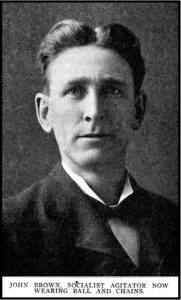
 —————
—————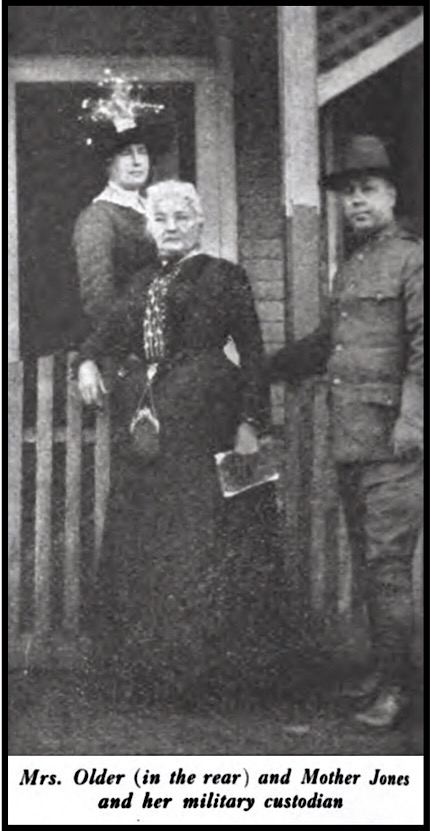
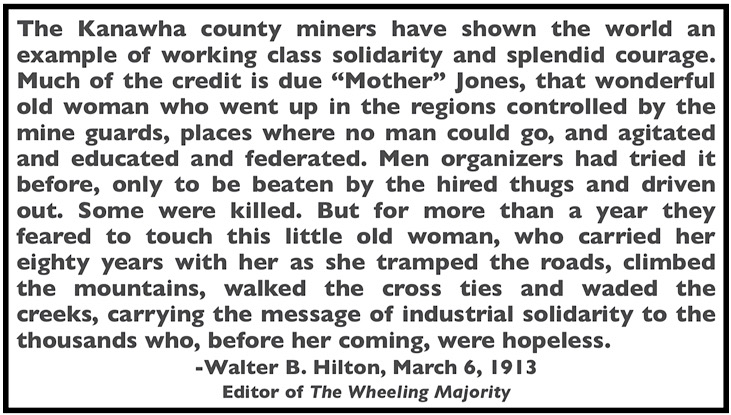 —————
—————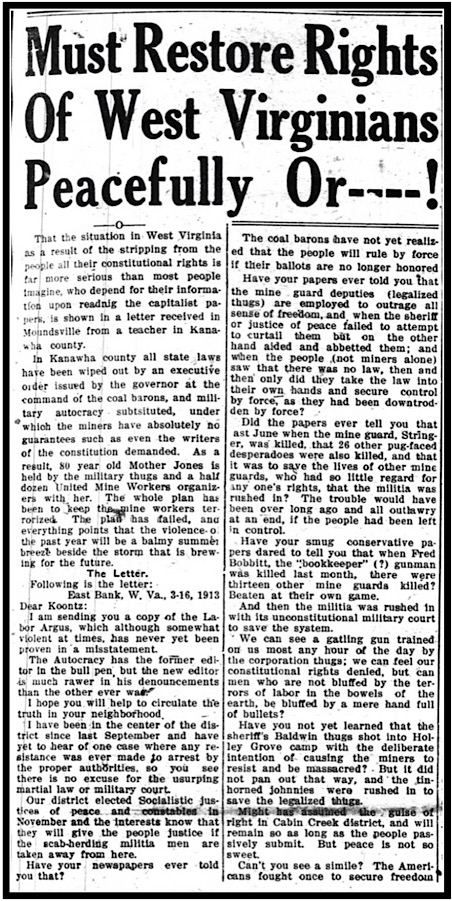

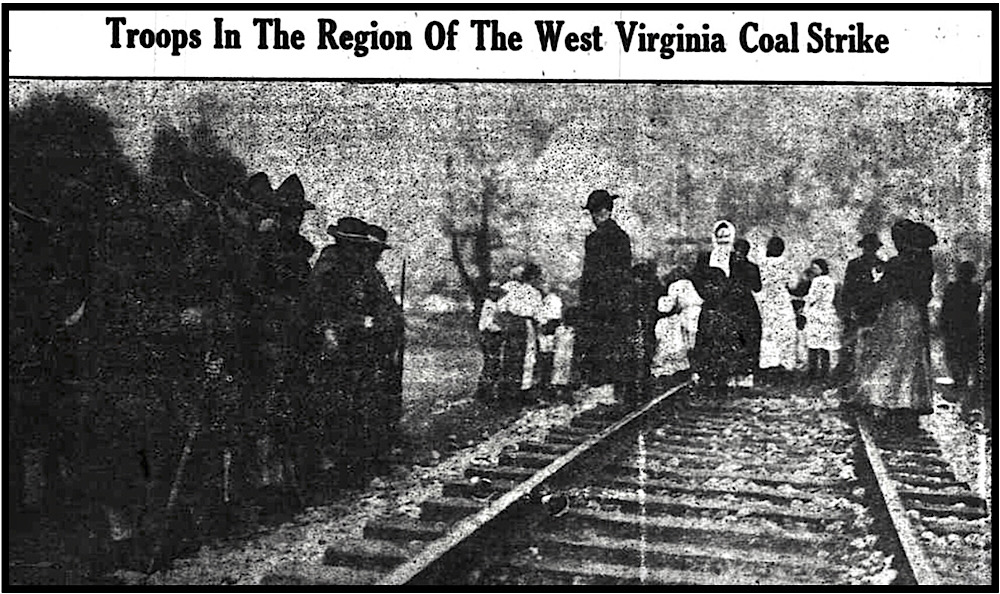
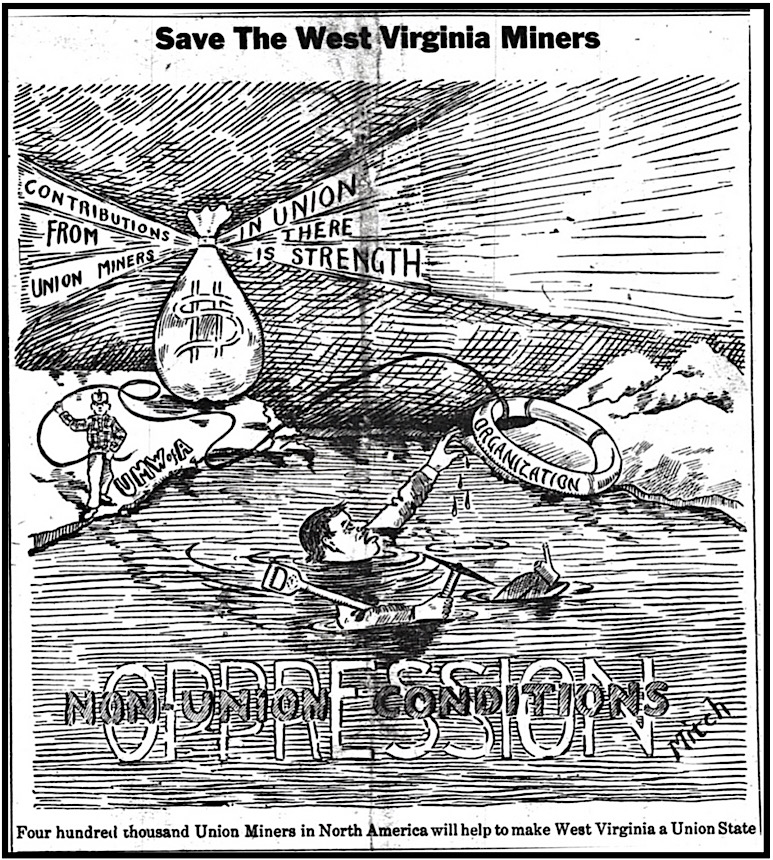
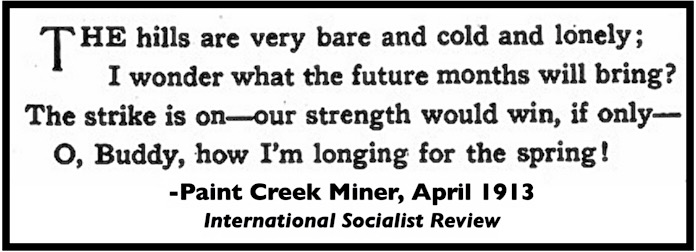 —————
—————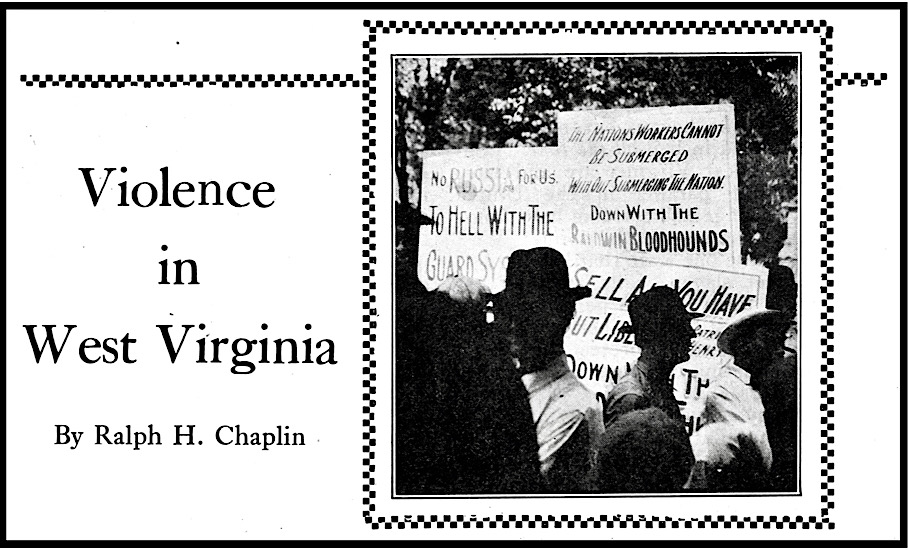
 —————
—————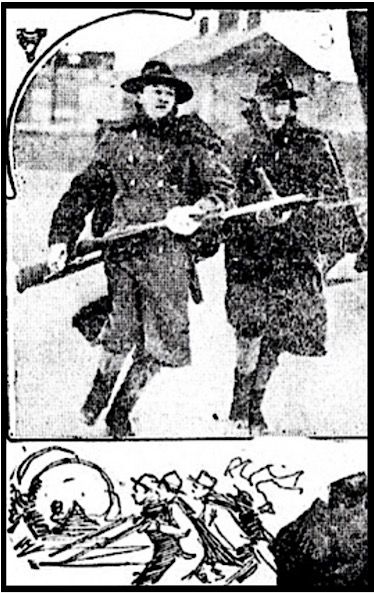
 ———-
———-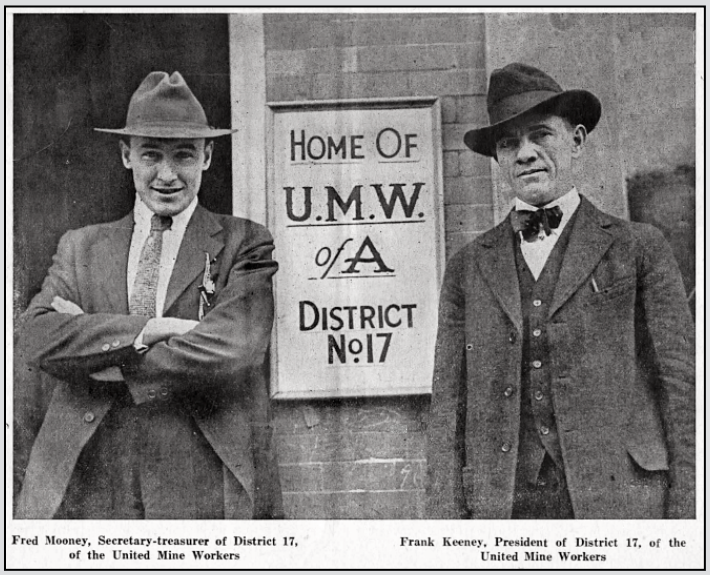
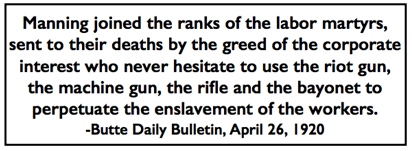 ———-
———-
